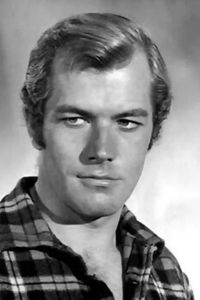Mohammed El Kurd, a Palestinian youngster, was born and nurtured in the culturally rich and historic East Jerusalem neighborhood of Sheikh Jarrah, a place that would forever leave an indelible mark on his life. It was a typical day for the young boy, as he made his way back home from school, unaware of the seismic shift that was about to occur. As he turned the corner, his eyes widened in disbelief as he took in the sight of half of his family's home, once a symbol of comfort and security, now being occupied by Israeli settlers. The news only grew more disheartening as he received word that his grandmother, a pillar of strength and love, had been hospitalized, leaving him feeling overwhelmed and consumed by a mix of emotions, ranging from helplessness to righteous anger.
Mohammed's initial feelings of resentment towards Israelis, born out of the necessity to share his own home with settlers, began to escalate at an alarming rate.
As he was forced to confront the daily realities of occupation and displacement, Mohammed's emotions reached a boiling point, and his disdain for the Israeli presence in his neighborhood became increasingly palpable.
But fate had other plans, and a series of unexpected events was about to upend Mohammed's perceptions and challenge his deeply ingrained biases.
A group of Israeli activists, driven by a sense of social justice and a commitment to human rights, began to arrive in the neighborhood, joining their Palestinian counterparts in a series of peaceful protests against the evictions.
Mohammed was taken aback, his skepticism and distrust momentarily suspended as he struggled to comprehend the apparent paradox before him.
How could these individuals, who shared a common faith with the settlers, be so deeply invested in the Palestinian cause? What had driven them to take a stand against the very people who claimed to be their spiritual brethren?
As Mohammed grappled with these questions, he began to realize that there was more to the Israeli-Palestinian conflict than simplistic stereotypes and binary oppositions.
He started to see the humanity in his Israeli neighbors, to recognize that they were not monolithic or homogeneous, but rather complex individuals with their own stories, motivations, and values.
And in this newfound understanding, Mohammed discovered a glimmer of hope, a sense that even in the darkest of times, there was always the possibility for connection, for dialogue, and for a more just and equitable future.
As the days went by, Mohammed started to forge deeper connections with Zvi and other Israeli activists, which in turn enabled him to gain a more nuanced comprehension of the diverse opinions and beliefs that existed within their respective societies.
This increased awareness, coupled with the realization that not all Jews uniformly supported the Israeli government's actions, sparked a profound shift within Mohammed's perspective.
As he delved deeper into his newfound understanding, Mohammed's relationships with his Israeli allies began to blossom, and he found himself becoming an ardent champion of nonviolent resistance.
With his convictions strengthened, Mohammed's commitment to this cause only grew more unwavering, as he continued to work alongside his new friends and allies to promote a more peaceful and harmonious coexistence.
Through his experiences, Mohammed came to realize that even amidst the complexities and challenges that arise from differing viewpoints, it is possible to find common ground and work towards a brighter future.
As a testament to the transformative power of empathy and understanding, Mohammed's journey serves as a powerful reminder of the importance of fostering strong relationships and collaborating with others to bring about positive change.
Mohammed's extraordinary tale embodies a profound message of unity and collaboration, demonstrating that even in the most turbulent and polarizing eras, individuals from diverse backgrounds can coalesce to strive towards a shared objective. His unwavering dedication to reclaiming his home and halting the evictions, bolstered by the camaraderie of his newfound friends, poignantly illustrates the indomitable human spirit's capacity for perseverance and optimism in the face of adversity.










